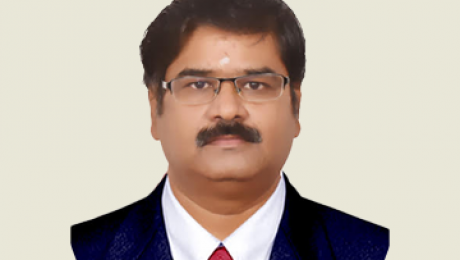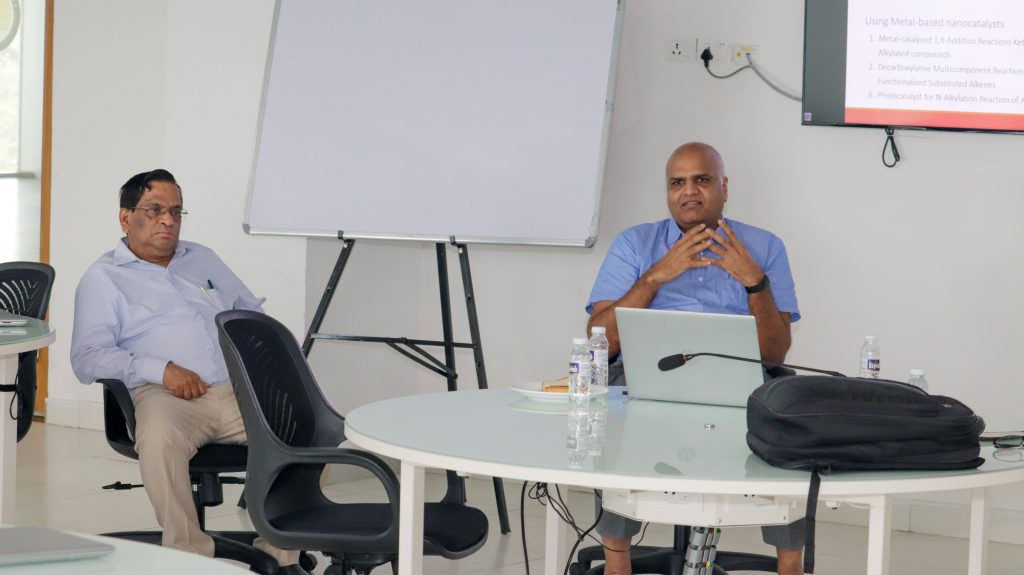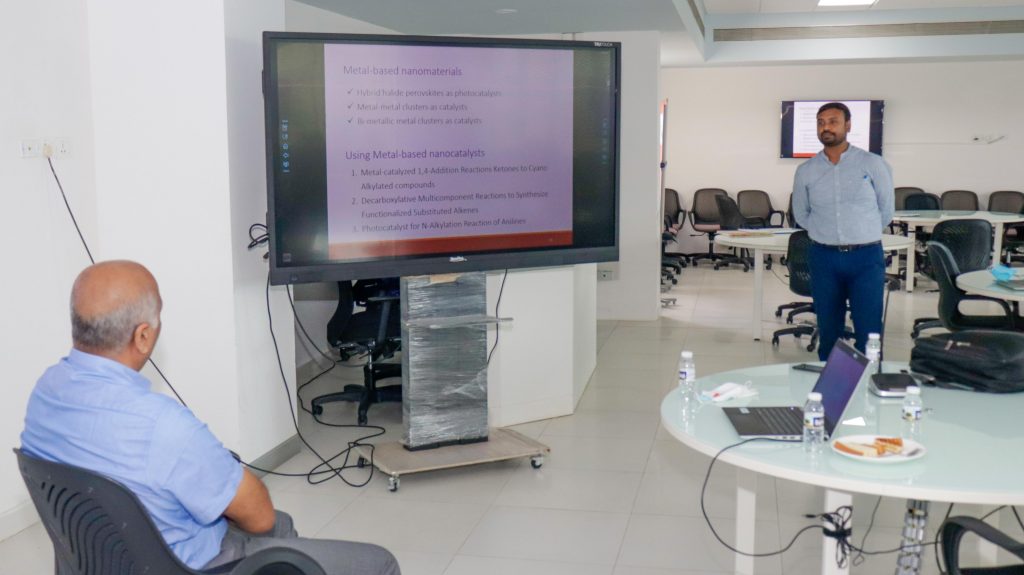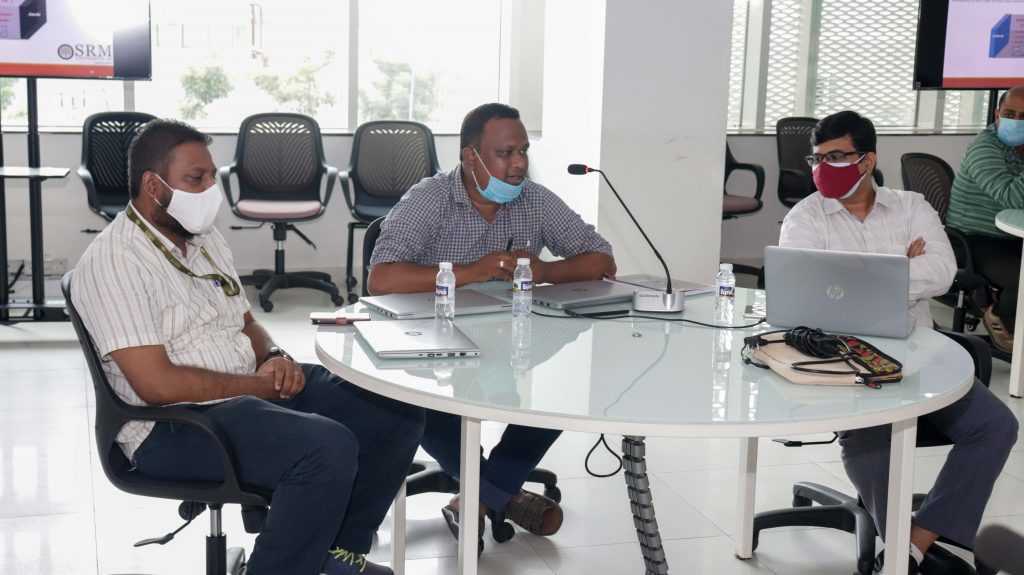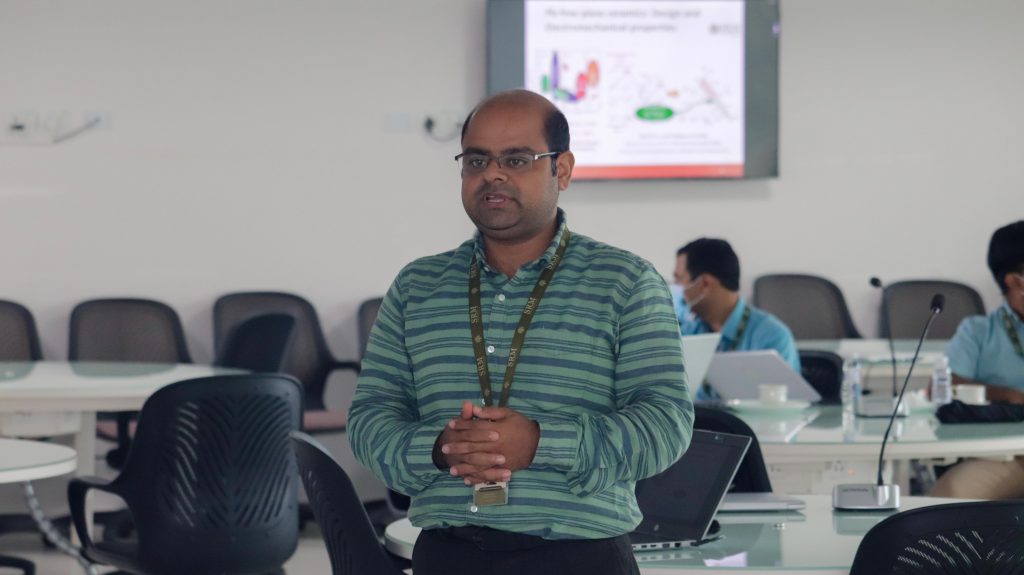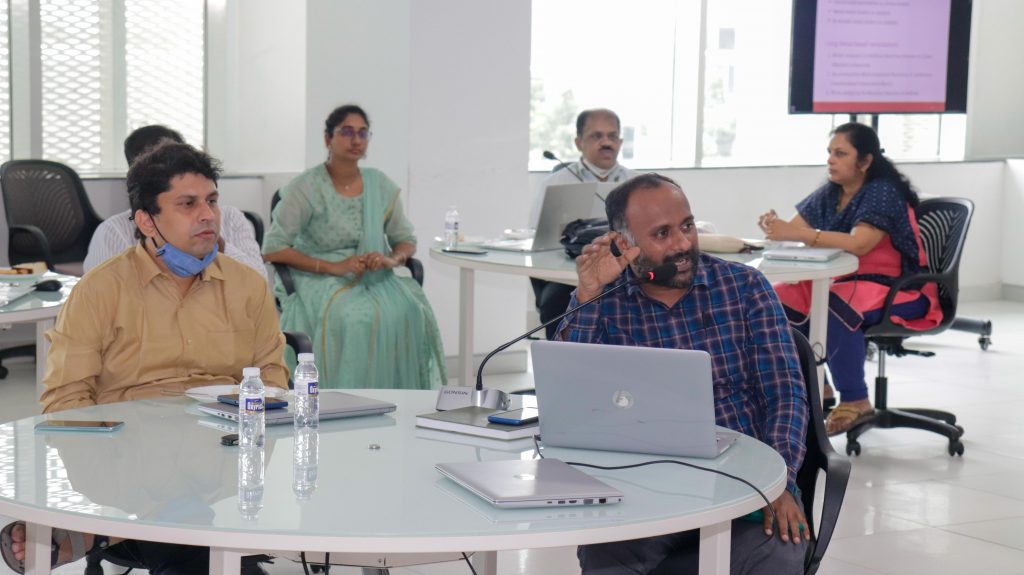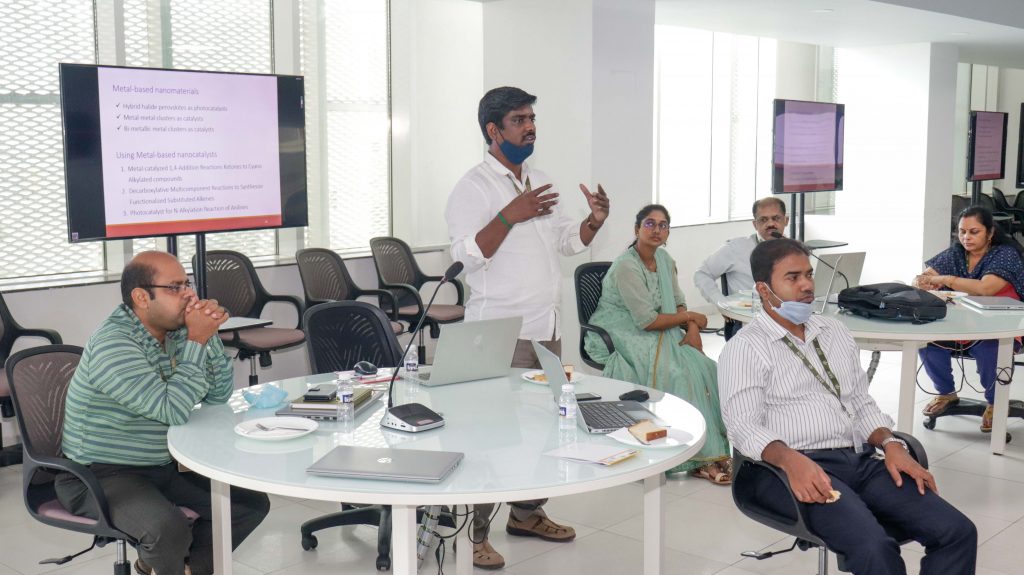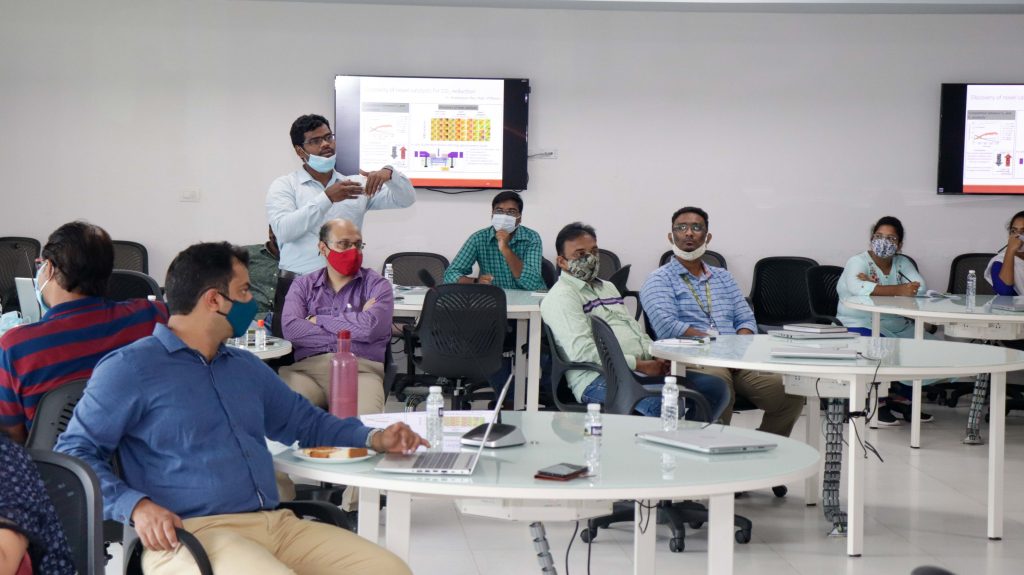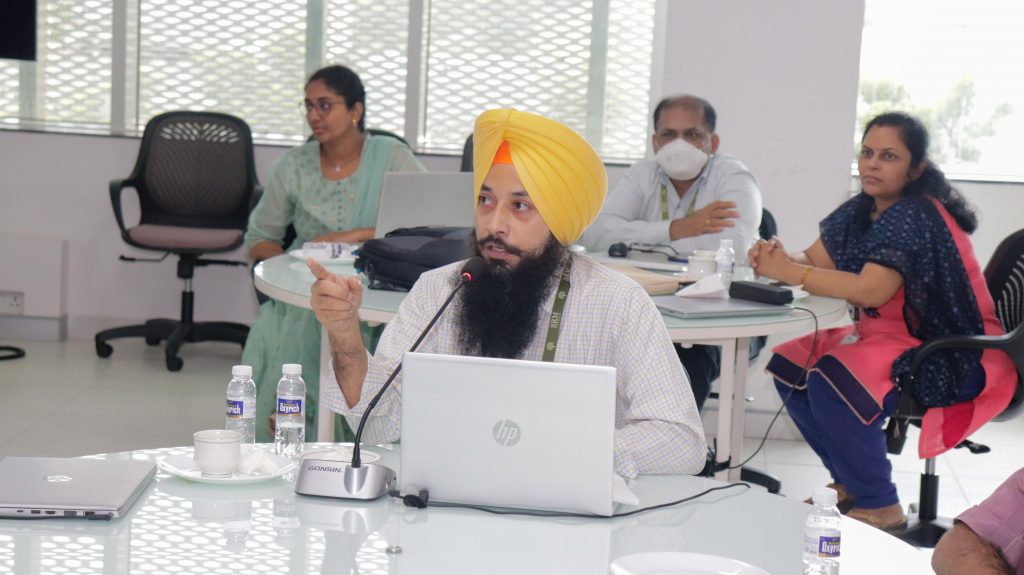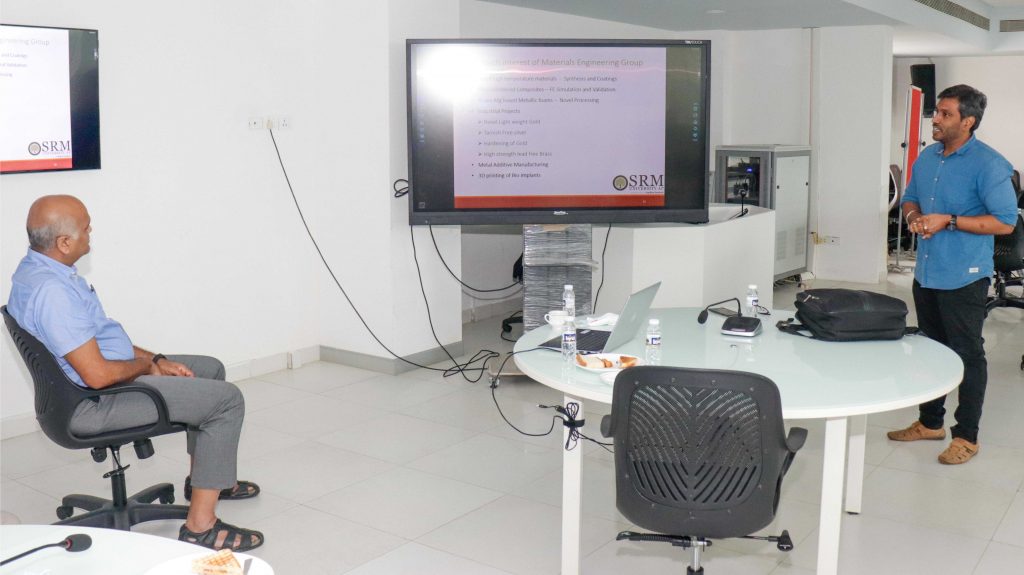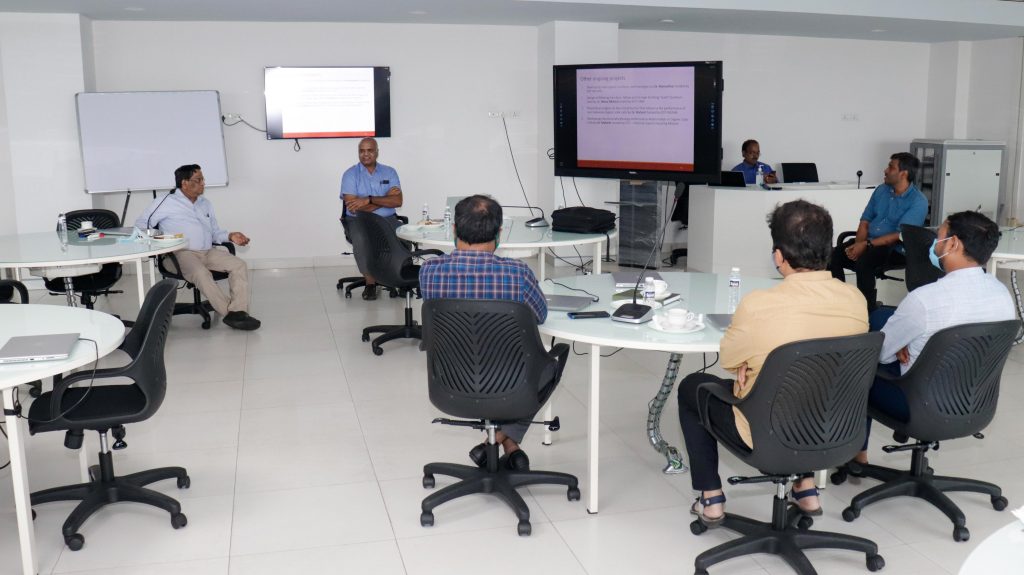Insightful discussion with Mr Karl-Alexander Seidel
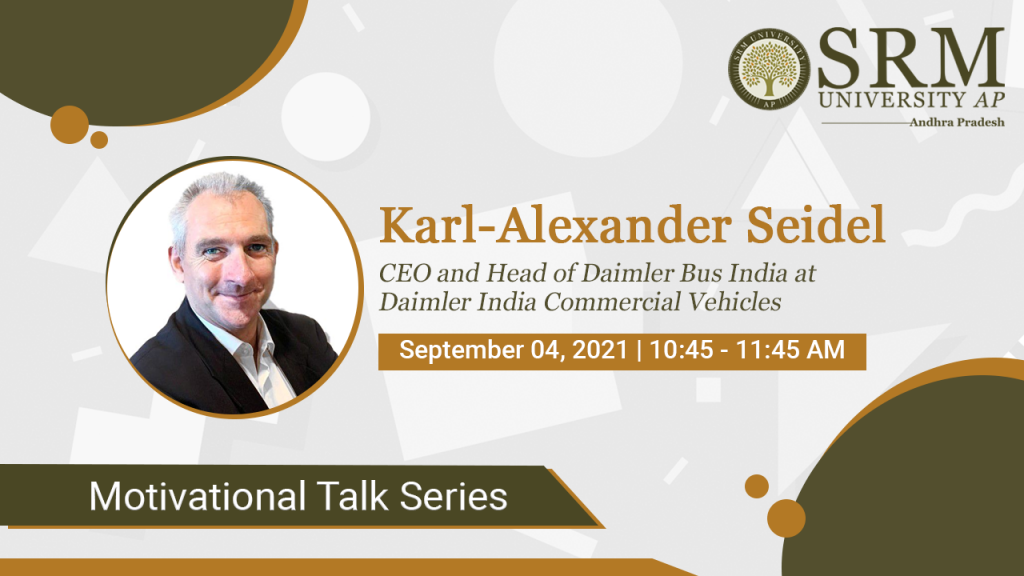 In the next chapter of Freshmen Orientation Programme-2021, a special talk will be delivered by renowned corporate mogul Mr Karl-Alexander Seidel. Mr Alex is the CEO and Head of Daimler Bus, India at Daimler India Commercial Vehicles. The talk has been scheduled for September 04, 2021, at 10.45 am and aims to provide an insight of the industry and its culture.
In the next chapter of Freshmen Orientation Programme-2021, a special talk will be delivered by renowned corporate mogul Mr Karl-Alexander Seidel. Mr Alex is the CEO and Head of Daimler Bus, India at Daimler India Commercial Vehicles. The talk has been scheduled for September 04, 2021, at 10.45 am and aims to provide an insight of the industry and its culture.
Mr Karl-Alexander Seidel started his career at Daimler in 2001. Between then and 2014, he held a variety of management functions in the fields of Reporting, Business Development, Product Planning and Homologation, mainly in Daimler’s commercial vehicles division, as well as at TASIAP GmbH in Stuttgart. Since 2014 he has been working for Daimler in India, where he was initially responsible for powertrain supplier management. Between 2016 and 2017 he was in charge of the “Logistics, Supplier & Quality Management” department at Daimler Buses in India before assuming his current function in 2017.
Mr Karl-Alexander Seidel is a highly competent commercial vehicles manager with many years of India-related experience from our bus business in Chennai. In recent years he has made a significant contribution to building up our Indian bus production activities by implementing corresponding supply and logistics flows, as well as the corresponding quality management.
- Published in Events, Students Affairs Events
Motivational session with Professor Upadrasta Ramamurty
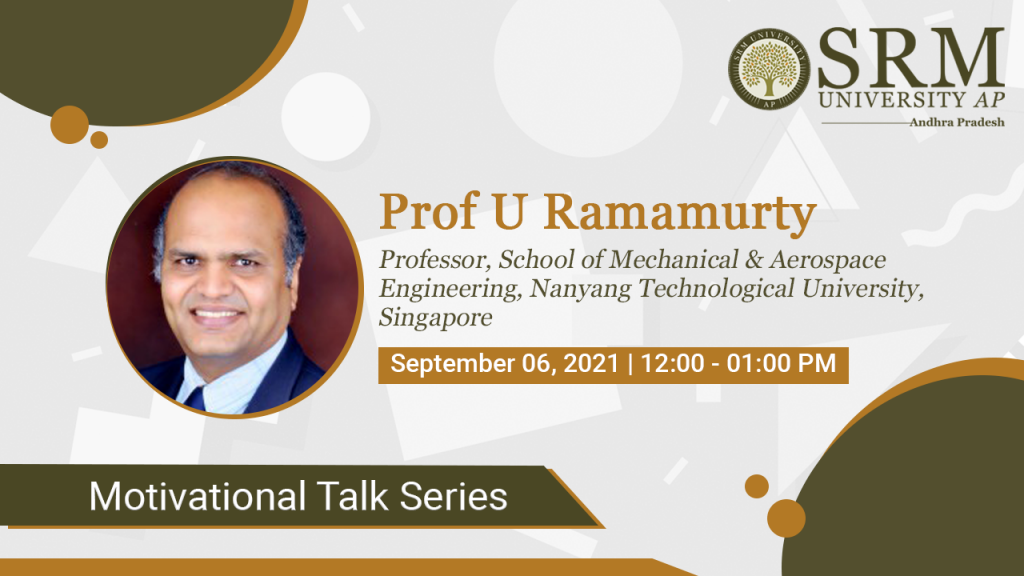 Freshmen Orientation Programme-2021 welcomes Professor Upadrasta Ramamurty, School of Mechanical & Aerospace Engineering, Nanyang Technological University, Singapore, to deliver a talk on September 06, 2021, at 12 noon.
Freshmen Orientation Programme-2021 welcomes Professor Upadrasta Ramamurty, School of Mechanical & Aerospace Engineering, Nanyang Technological University, Singapore, to deliver a talk on September 06, 2021, at 12 noon.
Professor Upadrasta Ramamurty received a Bachelor of Engineering (Metallurgy) degree from Andhra University in 1989 and a Master of Engineering (Metallurgy) degree from Indian Institute of Science in 1991, both with a Metallurgy specialisation, as well as a Doctorate of Philosophy degree in Engineering from Brown University in 1994. His postdoctoral research was carried out at the University of California-Santa Barbara and the Massachusetts Institute of Technology.
Professor Ramamurty is a widely respected researcher who has co-authored over 250 papers in peer-reviewed international journals that have been referenced over 9000 times (with a Hirsch index of 46) in both the Web of Science and Scopus databases. Several honours, including the Chinese Academy of Sciences’, the Lee Hsun Lecture Award of the Chinese Academy of Sciences, TWAS Prize (Engineering Sciences), CNR Rao Prize Lecture in Advanced Materials of Materials Research Society of India, J.C. Bose National Fellowship and Swarnajayanthi Fellowships of Government of India, Metallurgist of the Year Award by Indian Institute of Metals, and Scopus Young Scientist Award, have acknowledged his research efforts.
Professor Ramamurty is an elected fellow of the Indian National Science Academy, the Indian National Academy of Engineering, the Indian Academy of Sciences, and The World Academy of Sciences (TWAS). He held numerous distinguished/invited professor/scientist positions around the world, including the Institute of Materials Research (IMRE) in Singapore, Zhejiang University in China (Qiushi Distinguished Visiting Professor), Université de Lorraine in France (Exceptional Class Professeur invité), Jawaharlal Nehru Centre for Advanced Scientific Research in India, and the Massachusetts Institute of Technology.
Since 2014, Professor Ramamurty has served as an Editor for Acta Materialia and Scripta Materialia. Professor Ramamurty’s research focuses on addressing fundamental scientific and technological difficulties in the materials/mechanics domains, which have direct implications for advanced manufacturing as well as component structural integrity and reliability.
Professor Ramamurty made significant contributions to the understanding of the mechanical behaviour of advanced metallic alloys, composites, and molecular crystals during the course of a nearly three-decade professional career. The nature of his work is both fundamental as well as applied and hence was continuously supported by industrial giants like Boeing, General Motors and Rolls Royce.
- Published in Events, Students Affairs Events
Cost-effective electro-catalyst for oxygen reduction reaction
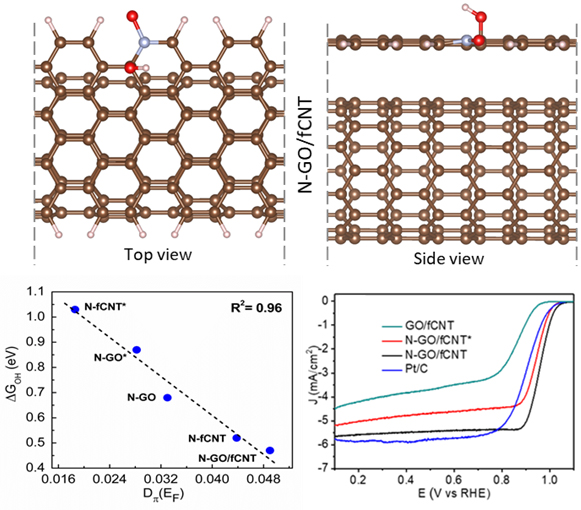 A research paper titled “Nitrogen doping derived bridging of Graphene and Carbon Nanotube composite for oxygen electroreduction” has been published by Prof Ranjit Thapa, Professor of Physics, SRM University – AP, as a co-author, in International Journal of Energy Research, having Impact Factor of 5.164.
A research paper titled “Nitrogen doping derived bridging of Graphene and Carbon Nanotube composite for oxygen electroreduction” has been published by Prof Ranjit Thapa, Professor of Physics, SRM University – AP, as a co-author, in International Journal of Energy Research, having Impact Factor of 5.164.
In this work, the research group investigated the origin of high catalytic activity of oxidic-N configuration in nitrogen-doped CNT and graphene heterostructure using density functional theory (DFT). We have plotted the free energy profile of the oxygen reduction reaction (ORR) to estimate the thermodynamic overpotential and catalytic performance of the respective active sites. The overpotential is related to the quantifying parameter ∆GOH (with R2 = 0.98) and the π electron density at the Fermi level, defined as an electronic descriptor, which is highly correlated with the ∆GOH with R2 value 0.96. For various N doped configurations, we correlated the ∆GOH values with π electron density at the Fermi level and found that the carbon site adjacent to the oxide-N configuration is a more prominent site for ORR. Further, we show that the oxidic-N configuration in the heterostructure of graphene and CNT is the ideal configuration, which gives a lower overpotential of 0.54 eV for ORR on adjacent carbon sites. Therefore, the charge transfer occurs from underneath CNT to graphene and increases the value of π electron density at the Fermi level which leads to the higher catalytic performance of the active site.
In the early 20th century, fuel cells were invented and their global impact has not reached up to its regular commercialization when compared with battery technology. The fuel cell device could be a powerful technique to generate electricity for large energy demand without greenhouse gas emissions. However, other major hurdles in the commercialization of fuel cell devices are the cost of platinum (as a catalyst), its poisoning and stability. Recently, carbon-based materials such as graphene, carbon nanotubes and activated carbon have been evolved as metal-free low-cost catalysts due to their (i) high abundance/yield (ii) reactivity towards oxygen just by introducing impurities like heteroatoms or other metals. However, identifying an efficient design principle to search optimal doping configurations in various carbon systems is a grand challenge for researchers.
This work is done in collaboration with Research Institute, SRM Institute of Science & Technology, Kattankulathur-603203, Chennai (India).
In future, the study aims to propose the effective design principle for various doped carbon systems as a catalyst to identify the optimal active sites and configurations for ORR. The role of π orbital in carbon systems such as graphene, graphene nanoribbons, carbon nanotube, etc is very important and can be a general electronic descriptor to define catalytic activity. Also, π electron descriptors and machine learning algorithms based combined approach can boost the search for ideal carbon catalyst for ORR with low DFT cost.
Read the full paper here: https://doi.org/10.1002/er.7179
- Published in Departmental News, News, Physics News, Research News
Dr Pitchaiah Cherukuri
- Published in Assistant Professor, Biological Sciences Faculty, Faculty, SEAS
Prof P Vivekananda Shanmuganathan
- Published in Faculty, ME Faculty, Professor, SEAS
A session to explore novel areas of research
 The Department of Mathematics at SRM University-AP is organising a webinar session on the topic “On non-vanishing of modular L-functions inside the critical strip” on September 08, 2021, at 3:30 pm. Mr E. M Sandeep, a senior researcher from the Kerala School of Mathematics will be the guest speaker at the event. All interested students and faculty are invited to join the session and gain insightful thoughts from the expert scholar.
The Department of Mathematics at SRM University-AP is organising a webinar session on the topic “On non-vanishing of modular L-functions inside the critical strip” on September 08, 2021, at 3:30 pm. Mr E. M Sandeep, a senior researcher from the Kerala School of Mathematics will be the guest speaker at the event. All interested students and faculty are invited to join the session and gain insightful thoughts from the expert scholar.
For more information, please go through the abstract provided on the left. Link to join the session
- Published in Departmental Events, Events, Math Events
Introduction to Geophysical Data Processing
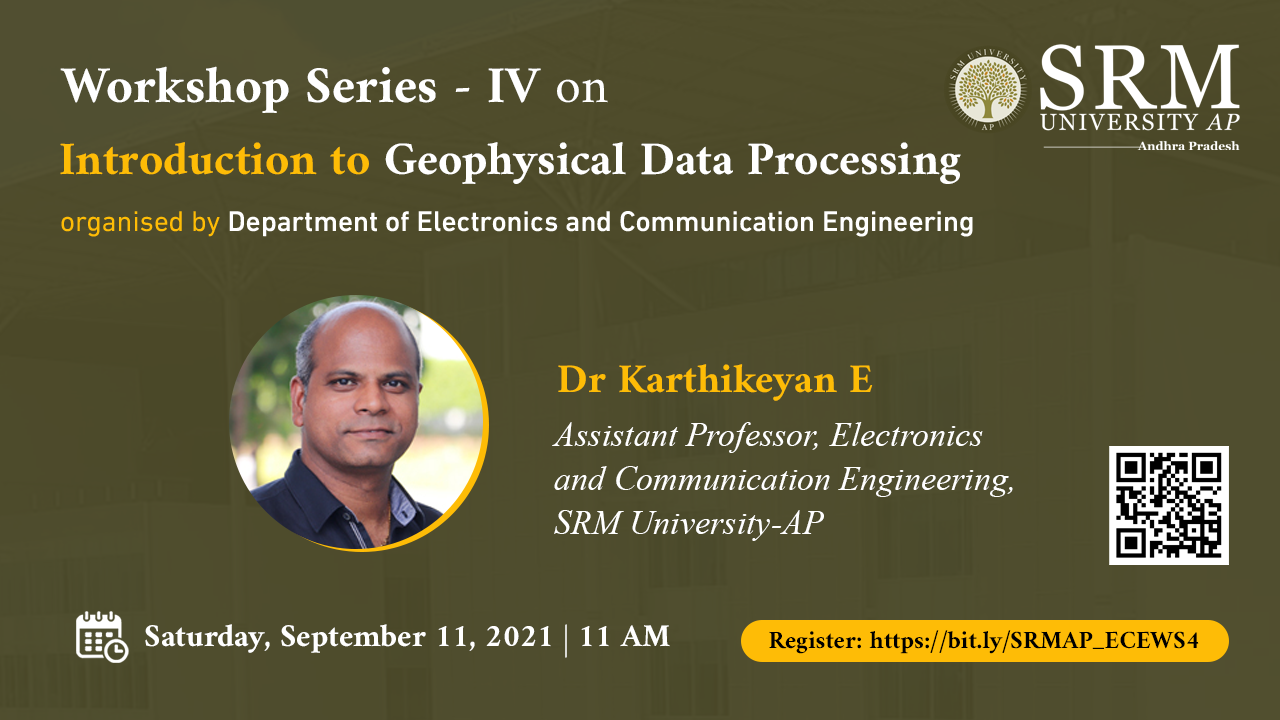 The fourth edition of the ongoing Workshop series “Learn & Earn: Hands-On Science & Technology (HOST)” organised by the Department of Electronics and Communication Engineering (ECE) at SRM University-AP is scheduled to be held on September 11, 2021, at 11.00 am. The workshop series-IV titled “Introduction to Geophysical Data Processing” will be engaged by Dr Karthikeyan Elumalai, Assistant Professor in the department.
The fourth edition of the ongoing Workshop series “Learn & Earn: Hands-On Science & Technology (HOST)” organised by the Department of Electronics and Communication Engineering (ECE) at SRM University-AP is scheduled to be held on September 11, 2021, at 11.00 am. The workshop series-IV titled “Introduction to Geophysical Data Processing” will be engaged by Dr Karthikeyan Elumalai, Assistant Professor in the department.
Between measuring geophysical data and charting it, there is a stage called data processing. Some measurement inaccuracies can be addressed during this process. Various aspects of the data can also be extracted. In a geophysical map, for example, large or small patterns might be emphasised, and anomalies that extend in one direction can be enhanced or muted. The workshop aims to learn and explore the latest techniques in the field of Geophysical Data Processing.
About the Speaker:
Dr Karthikeyan Elumalai received his BE and ME degrees from Anna University, Chennai in 2007 and 2009 respectively. He completed his PhD degree from the Indian Institute of Technology Delhi (IIT-D) in 2018. He is working as an Assistant Professor in the Department of ECE, SRM University-AP. He has also received a research grant from the Department of Science and Technology (DST), India. His research interests include seismic signal processing, seismic modelling and inversion, and machine learning.
Join this informative session on September 11, 2021, at 11.00 am to know more about Geophysical Data Processing and its thrust areas.
Register here: https://srmap.zoom.us/webinar/register/WN_tfnal7QcRCGX3eErWLgihg
- Published in Departmental Events, ECE Events, Events, Workshop
Prof U Ramamurty, renowned researcher from NTU Singapore, visits SRM University-AP
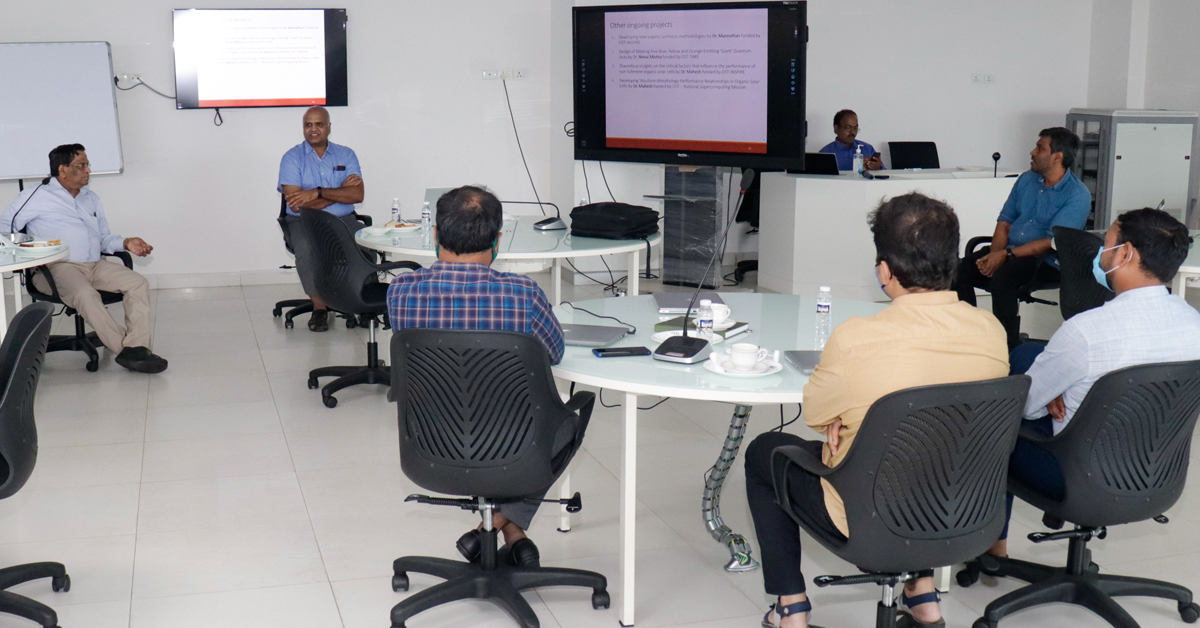 An interactive session between Prof U Ramamurty, President Chair Professor, School of Mechanical & Aerospace Engineering at Nanyang Technological University (NTU), Singapore, and the faculty members of SRM University – AP, Andhra-Pradesh was held on Monday.
An interactive session between Prof U Ramamurty, President Chair Professor, School of Mechanical & Aerospace Engineering at Nanyang Technological University (NTU), Singapore, and the faculty members of SRM University – AP, Andhra-Pradesh was held on Monday.
During the discussion, Prof Ramamurty emphasized the importance of research collaboration between faculty members from different research areas and about utilizing expertise to achieve significant scientific output.
Dr Pardhasaradhi Maram from the Department of Chemistry, Dr Sabyasachi Mukhopadhyay from the Department of Physics, and Prof G S Vinod Kumar from the Department of Mechanical Engineering presented their detailed research areas that focus on storage devices, catalysts for value-added products, energy and sensing devices, novel metallic materials, additive manufacturing of metals and Bio-implants, and industry collaborative research work.
Prof Ramamurty said that he is glad to see that productive science is being done at SRM University-AP. “Given that the University has started only 4 years ago and been functioning amidst a pandemic for more than one and a half years, the progress in research is significant and very impressive. Interdisciplinary efforts between various departments in the University will give effective results”, he added.
Prof D Narayana Rao, Pro-Vice-Chancellor, SRM University – AP expressed his interest in establishing NTU – SRM joint Centre for Advanced Research in functional and structural materials at SRM University campus to Prof Ramamurty. The centre that Prof Rao envisions will provide an opportunity to synergize the expertise and resources of NTU, Singapore, and SRM University – AP to carry out front-line research in the areas of novel materials, self-healing materials and also additive manufacturing (3D Printing of metals and bio-implants).
- Published in Chemistry-news, Departmental News, Mechanical Engineering NEWS, News, Physics News, Research News
Liza Hazarika to usher in the Powers of Mind
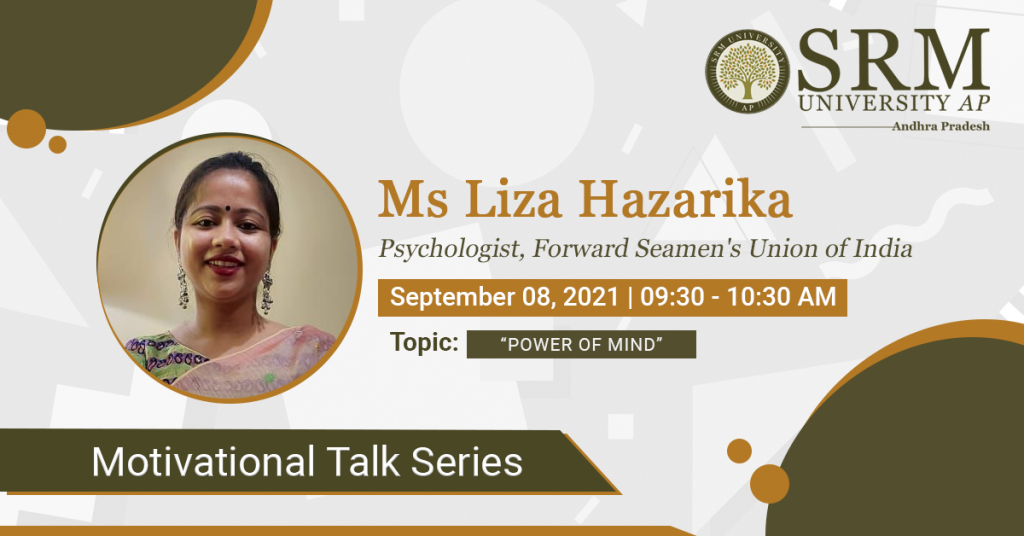 Ms Liza Hazarika is joining the Freshmen Orientation Programme-2021 on September 08, 2021, at 9.30 am to deliver an interesting talk on “Power of Mind”.
Ms Liza Hazarika is joining the Freshmen Orientation Programme-2021 on September 08, 2021, at 9.30 am to deliver an interesting talk on “Power of Mind”.
Ms Liza Hazarika is currently working as a psychologist with Forward Seamen’s Union of India and is also associated with Pratishruti Cancer and Palliative Trust as a volunteer and psychologist.
Ms Hazarika is a certified Spiritual therapist from Amrit Asmi Institute. She believes in a holistic approach to treatment. She is the founder of Call For Healing, a space for spiritual practices. Ms Hazarika is also actively involved in several Non-Governmental Organizations working in areas of mental health. She has done her Master’s in Clinical psychology and Bachelor’s in Psychology from Handique Girl’s College, Guwahati.
Join her on September 08, 2021, at 9.30 am to learn to unleash the powers of the mind.
- Published in Events, Students Affairs Events
In conversation with Dr Venkata Ramana Akula
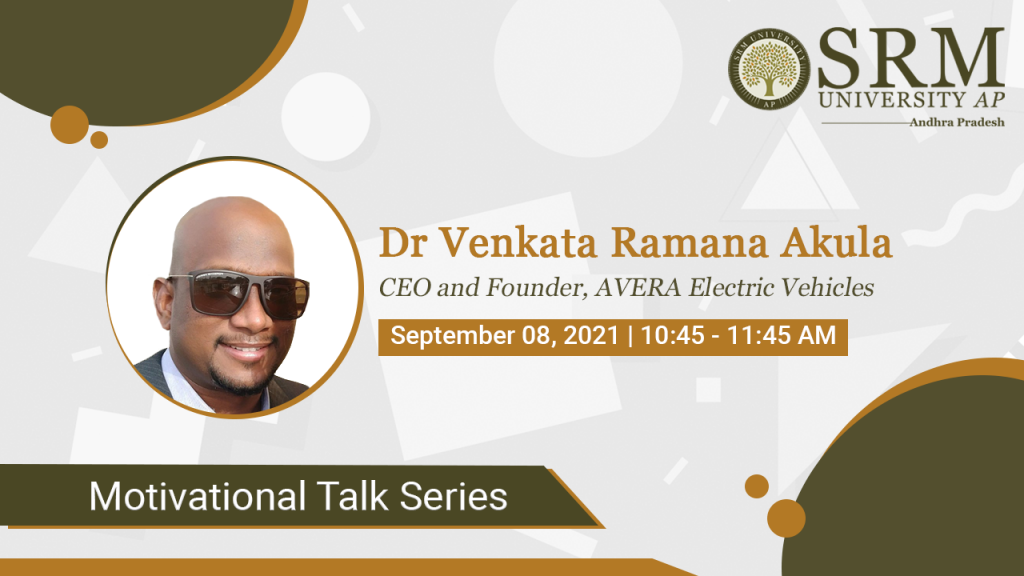 The Freshmen Orientation Programme 2021 brings another exciting session with Dr Venkata Ramana Akula, Founder & CEO, AVERA, on September 08, 2021, at 10.45 am.
The Freshmen Orientation Programme 2021 brings another exciting session with Dr Venkata Ramana Akula, Founder & CEO, AVERA, on September 08, 2021, at 10.45 am.
Dr Ramana AVE, an innovative and performance-driven entrepreneur with a deep passion for technology and business, led the development of India’s first largest electric scooter manufacturing unit AVERA at Vijayawada, Andhra Pradesh. Being the Founder & Chief Executive officer for AVERA, he is experienced in managing all aspects of business development, including quality, product development and identifying new segments with growth opportunities. Dr Ramana was the man behind the inception of India’s first high-speed electric scooter RETROSA. An accomplished businessman with excellent leadership skills, Dr Ramana, is known for delivering substantial revenue and profits gained in a highly competitive market.
Join the session to interact with the entrepreneur on September 08, 2021, at 10.45 am to learn more about business ventures and ideas.
- Published in Events, Students Affairs Events


